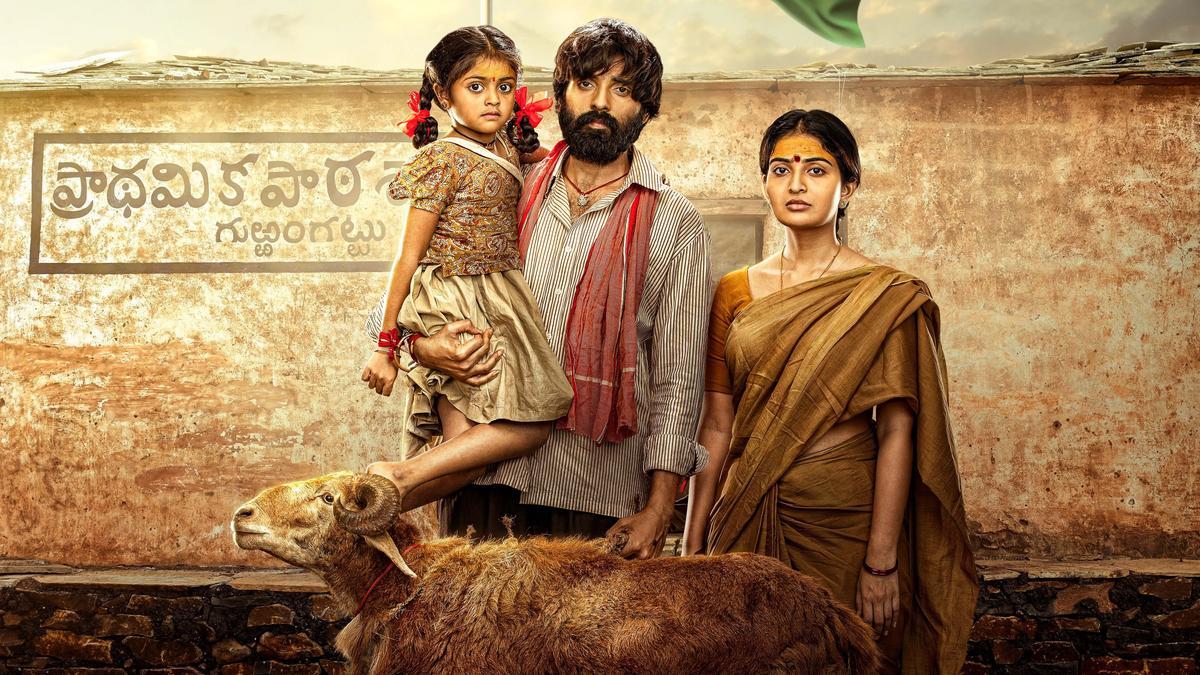
The Telugu film Pottel challenges viewers with its intense narrative and gut-wrenching scenes, painting a vivid picture of the struggles faced in the pursuit of education. Helmed by writer-director Sahit Mothkuri, this robust cinematic venture underscores the perennial significance of education as a tool for social change, especially in overcoming systemic oppression. Set against the backdrop of rural Vikarabad in Telangana, Pottel delves into a world where traditional beliefs and power dynamics dominate the socio-political landscape, yet its core message resonates universally even in today’s context.
The director’s ambitious vision is brought to life with the help of a strong cast. Yuva Chandra Krishna, Ananya Nagalla, and Ajay deliver remarkable performances, supported by a group of talented child actors. Their compelling portrayals are integral to the film’s essence, though the shadow of melodrama occasionally looms large, threatening to overshadow the nuanced storytelling with heightened emotions and relentless violence.
At the heart of Pottel is a gripping confrontation between two polar opposites. Ajay’s Patel is an authoritarian force, ruling the village with an iron fist. He employs age-old rituals and the facade of divine will to uphold his tyrannical dominance, resorting to extreme acts like human and animal sacrifice. Opposed to him is Gangadhar, played by Yuva Chandra. Gangadhar represents the voice of reason and resistance, recognizing education as the only viable weapon against inequality and oppression. This battle of ideals sets the stage for a gripping narrative, where every action and reaction is loaded with implications.
The film opens with a display of Patel’s unyielding brutality, setting a tense tone that is suffused with urgency when Gangadhar takes on a race against time to save his daughter. The storyline exposes Patel’s power-based egoistic fabric, presenting him as an all-consuming antagonist whose influence leaves women and villagers voiceless and subjugated. Their blind adherence to ritualistic traditions shrouds any hope for questioning or change.
One of the film’s most poignant moments surfaces when it illustrates the stakes of educational deprivation through the tragic incident of a father and his two sons. Unable to comprehend a warning sign due to illiteracy, they pay a heavy price. This event is a pivotal point in the storyline, starkly highlighting the village’s socio-economic hardships, compounded by the oppressive Patels’ prohibition of lower-caste children from accessing education.
.
Director Sahit Mothkuri deftly explores how transformation is an arduous journey that requires resilience through generations. Gangadhar, despite being a humble goatherd, is portrayed as a beacon of rationality, unfazed by the prevalent herd mentality. His determination to educate his daughter Saraswathy amidst societal constraints marks a significant departure from the norm. The titular element, a male goat or ram (‘pottelu’ in Telugu), symbolizes tradition-bound practices that are central to the narrative.
The film gathers emotional momentum through Gangadhar’s unwavering struggle, supported by his wife Bujjiamma, portrayed by Ananya Nagalla. Bujjiamma’s backstory, unspooled throughout the film, adds depth to her character, distinguishing her from other women who suffer silently under patriarchal norms.
While Pottel’s emphasis on educational importance forms its backbone, its impact is somewhat tempered by a tendency towards melodrama. The film occasionally dips into over-sensationalized territories, where acts of violence against those challenging the status quo are recurrent. The depiction of women being slapped, children flung to the ground, and cruelty as a punitive response tend to serve more as emotional bait rather than narrative necessity.
Despite this, there are redeeming glimpses where the film shines. Instances like the transformative journey of a school teacher or the enlightenment of a child who deciphers a long-ignored pamphlet serve as inspirational beacons. Still, the story often reverts to its melodramatic vein, which can become wearying.
Each principal actor — Yuva Chandra, Ananya, and Ajay — excels in embodying their characters, sustaining the film’s coherence. Enhancing this tapestry is Sekhar Chandra’s musical score and Monish Bhupathi Raju’s vivid cinematography, which artistically captures the stark regional environment and the rugged life it entails.
Ultimately, Pottel captivates with its thematic resonance and engaging story, although it occasionally wavers under its melodramatic weight. A more nuanced treatment of Patel’s tyranny could have rendered this narrative a standout exploration of educational empowerment from rural roots. Yet, for its intention and ambition alone, Pottel stands as a significant film currently running in theaters.












